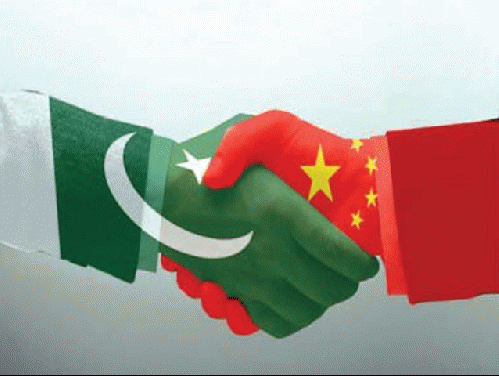In the background of current political turmoil, PM Nawaz Sharif's recent visit to China has brought fresh breeze in suffocated and stagnant political environment created by PAT and PTI prolong sit-ins in the country. The inter-state visit has strengthened the bilateral ties and economic co-operation between both the countries. Almost 19 trade agreements and MOUs in the field of infrastructure, technology, polio prevention, solar housing and energy have been signed. At present, Pakistan-China has trade of almost $12 billion which is targeted to rise to $15 billion in the next few decades. The bilateral visit which was aimed at rebuilding investor confidence and attracting huge foreign investments had been a great success as Pak-China friendship has reached new heights of mutual co-operation and understanding.
Pakistan-China relations have always been marked by deep strategic vision, global diplomacy and pragmatism shown by both the sides to reciprocate each other's regional and strategic interests. Chinese premier was first foreign leader to visit Pakistan after Nawaz Sharif victory in the 2013 polls. The Chinese president's visit to India in september and cancellation of his visit to Pakistan had extremely disappointed the nation but this recent visit has opened new overtures of hopes and opportunities for both the nations. The upgradation of Karakorum Highway as a part of proposed economic corridor and handing over of Gwadar Port to China are way forward in Pak-China bilateral relations. Pakistan has pledged to co-operate to fight terrorist forces such as East Turkistan Islamic Movement and militants from Xinjiang, said to be residing in its tribal belt. Both the counties have promised to co-ordinate and work jointly on Afghanistan to promote peace and stability in the region.
At regional level, India is not much happy with these growing Pak-China military and diplomatic ties as during his Indian visit, Xi had announced $20 billion Chinese investment in India for the next five years while it has promised to invest over $42 billion in Pakistan, showing strong Pakistan-Chinese alliance, a grave threat to India. China has also increased its trade with South East Asian countries including Vietnam, Philippine, Myanmar, Singapore and Malaysia to balance the increased US influence in the region under its Asia-Pacific policy. China is spending heavily on its navy and building its sea-ports in Bangladesh, Sri-Lanka and Pakistan as a part of its "string of pearls" strategy. These developments include both economic and military implications. This rise of China policy has threatened the West and US and they are pursuing the policy of China's containment in the region. India has been playing pivotal role to oppose these Chinese developments along with USA. In the light of such regional developments, Pakistan-China friendship is a counter balance to Indo-US strategic partnership in the region.
Historically speaking, there is convergence of economic, security and strategic interests of both the states in the region. China has always considered Pakistan as a significant regional ally and as an access route to CARs and Middle East through revival of its old silk route. Over the years, China has supported Pakistan over Kashmir issue and in its fight against terrorism. The construction of the Karakoram Highway, Heavy Mechanical Complex at Taxila and Chashma Nuclear Plants (III and IV) are symbol of their mutual co-operation and joint ventures. Similarly, Pakistan has facilitated China to end its isolation during Cold War era and development of its relations with USA and the West. Pakistan has stood with China over issues of sovereignty in Hong Kong, Tibet, Taiwan and human rights issues. Chinese nuclear co-operation with Pakistan after discriminatory Indo-US nuclear deal and US shift towards India has pushed Pakistan to further diversify its foreign policy towards China.
As Pakistan and China are moving ahead in their bilateral relations to end power shortage, create job opportunities and uplift the economy and tourism in Pakistan. PM Nawaz Sharif's recent visit to China would only be fruitful and productive if there would be materialization of Pak-China Economic corridor and practical implementation of these bilateral agreements signed between both the countries.






